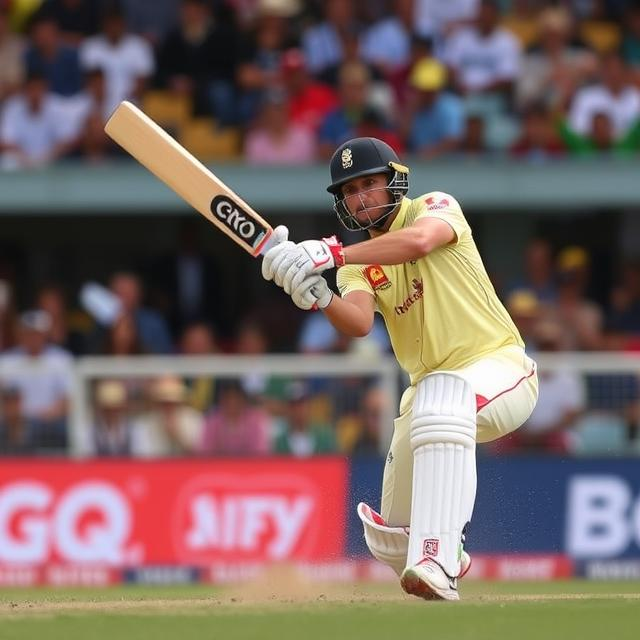Diplomacy Through the Oval: Pakistan’s Cricket as a Tool of Statecraft
Diplomacy Through the Oval: Pakistan’s Cricket as a Tool of Statecraft
Cricket, a game steeped in tradition and passion, often transcends its sporting boundaries, becoming a surprising conduit for diplomacy. This is particularly true for Pakistan, a nation whose sporting triumphs and struggles have frequently intersected with its geopolitical aspirations. This article explores how Pakistan’s cricket team, with its fervent fanbase and international visibility, has acted as an unexpected diplomatic tool, forging connections and influencing perceptions on the global stage. From fostering regional alliances to navigating international tensions, the game has played a remarkable role in Pakistan’s foreign policy maneuvers.

A Complex Landscape: Cricket and Pakistan’s Foreign Policy
Pakistan’s cricket team has often been a microcosm of the country’s multifaceted relationship with the international community. The team’s performance has been intertwined with broader national narratives, reflecting both triumphs and setbacks. Consider the Pakistani team’s participation in international tournaments: these events, while seemingly simple sporting contests, can be significant platforms for showcasing national pride and fostering diplomatic exchanges. Furthermore, the team’s interaction with international peers, both on and off the field, can provide opportunities for nuanced dialogue and relationship-building.
This complex dynamic extends beyond simple camaraderie. Pakistan’s cricketers have frequently been at the forefront of cultural diplomacy, showcasing the country’s rich heritage and artistic expression through their interactions with international counterparts. Cricket, at times, has functioned as a catalyst for overcoming cultural barriers and fostering mutual understanding. It provides a platform where Pakistan can portray a more complete and multifaceted image to the world, one that moves beyond headlines and stereotypes.
Building Bridges Through Bilateral Relations
Pakistan’s cricket team, through its engagements with other nations, has acted as an effective facilitator for bilateral relations. Consider friendly series against other countries: these events aren’t just about scoring runs and taking wickets; they offer an opportunity to develop personal relationships between players and support staff, strengthening potential avenues for cooperation in other sectors. The common ground provided by shared passion for the game can pave the way for more substantial dialogues and collaborations. These diplomatic exchanges, while seemingly subtle, can be vital in establishing trust and goodwill.
The Pakistani team’s tours to different countries offer invaluable opportunities to connect with local communities and build relationships at an interpersonal level. This grassroots engagement, which often extends beyond the sporting arena, can be pivotal in fostering a more nuanced and positive perception of Pakistan abroad.
Navigating Geopolitical Tensions: Cricket as a Bridge
Pakistan’s cricket diplomacy is not without its complexities, especially considering the geopolitical tensions that often permeate the country’s relations with other nations. Navigating these diplomatic hurdles is vital for the team. The delicate balance between national pride and international relations is often played out on the cricket pitch, with players representing both the spirit of competition and the need for amicable interactions.
Pakistan’s cricket matches against countries with which they have geopolitical tensions frequently become symbolic representations of larger geopolitical issues. These matches are intensely watched, and the outcomes can influence public sentiment and perceptions of the respective countries. The ability of Pakistani cricketers to maintain composure and dignity during these matches, even amidst heightened tensions, plays a significant role in maintaining diplomatic channels.
Beyond specific matches, the engagement of Pakistani cricket teams with those from other nations provides an invaluable platform for fostering communication and understanding, an approach which is especially significant when political relations are strained. The shared passion for cricket can create a space for dialogue and mutual understanding where other avenues might be less accessible.
The Challenges and Limitations: Navigating the Complexities
Despite the potential for cricket as a diplomatic tool, several challenges remain. Pakistan’s cricket teams aren’t immune to political pressures and external influences. Public sentiment and political agendas can significantly impact the team’s performance and their interactions with other nations. Navigating these complexities requires a delicate balance between sporting excellence and diplomatic sensitivity.
Further, Pakistan’s domestic political landscape can also affect the team’s image and diplomatic efforts. Internal political issues can sometimes overshadow the positive aspects of cricket diplomacy, potentially creating difficulties in maintaining a consistently favorable international image. External pressures and conflicting narratives surrounding Pakistan often affect the way their cricket is perceived globally. This necessitates careful management and strategic communication by Pakistani authorities.
Furthermore, the effectiveness of cricket as a diplomatic tool is not always straightforward or easily quantifiable. Assessing the direct impact of these engagements on bilateral relations or geopolitical outcomes is challenging. While the impact might not always be evident in a measurable, direct way, the positive effects can still be intangible, building trust and fostering a more positive image of Pakistan globally.
Conclusion: A Continued Role in Statecraft
In conclusion, Pakistan’s cricket has served as a surprisingly effective instrument of statecraft. It has acted as a platform for building bridges, navigating geopolitical complexities, and fostering international relations. While challenges remain, cricket’s unique capacity to transcend political boundaries, fostering communication and understanding, suggests that it will likely continue to play a significant role in Pakistan’s foreign policy in the years to come. The potential for cricket to act as a conduit for diplomacy, even in the most challenging circumstances, offers a unique and noteworthy avenue for fostering international relations.
From bilateral engagements to navigating geopolitical landscapes, the Pakistani cricket team has demonstrated the enduring power of sport to influence perceptions, foster understanding, and, at times, create unexpected diplomatic pathways. Cricket diplomacy, as demonstrated by Pakistan, offers a compelling case study in the unexpected ways that seemingly simple interactions on the field can significantly impact the global stage.